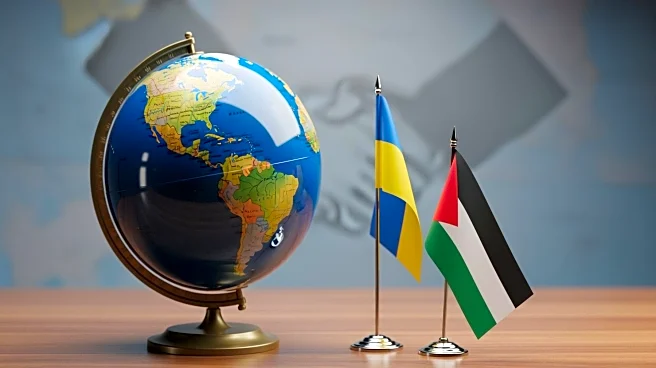What's Happening?
President Donald Trump's planned summit with Russian President Vladimir Putin has been indefinitely postponed. This development follows Trump's recent diplomatic success in brokering a ceasefire in Gaza. The U.S.-Russia summit was intended to address
the ongoing conflict in Ukraine, but has been shelved due to a lack of preparation. Trump has faced challenges in leveraging his diplomatic influence in the Ukraine conflict, unlike his success in Gaza. The president's attempts to negotiate with both Putin and Ukrainian President Volodymyr Zelensky have not yielded significant progress towards peace.
Why It's Important?
The postponement of the Trump-Putin summit underscores the difficulties in resolving the Ukraine conflict through diplomacy. President Trump's fluctuating strategies and limited leverage in the region highlight the complexities of international negotiations. The situation has broader implications for U.S. foreign policy and its ability to influence outcomes in global conflicts. The contrast between Trump's success in Gaza and the stalled efforts in Ukraine illustrates the challenges of applying diplomatic strategies across different geopolitical contexts.
Beyond the Headlines
The dynamics of Trump's engagement with the Ukraine conflict reveal the limitations of personal diplomacy in complex international disputes. The president's belief in face-to-face negotiations may be exploited by other leaders, as seen in Putin's strategic maneuvers. The situation raises questions about the effectiveness of traditional diplomatic approaches in modern conflicts and the need for innovative strategies to achieve lasting peace.
















